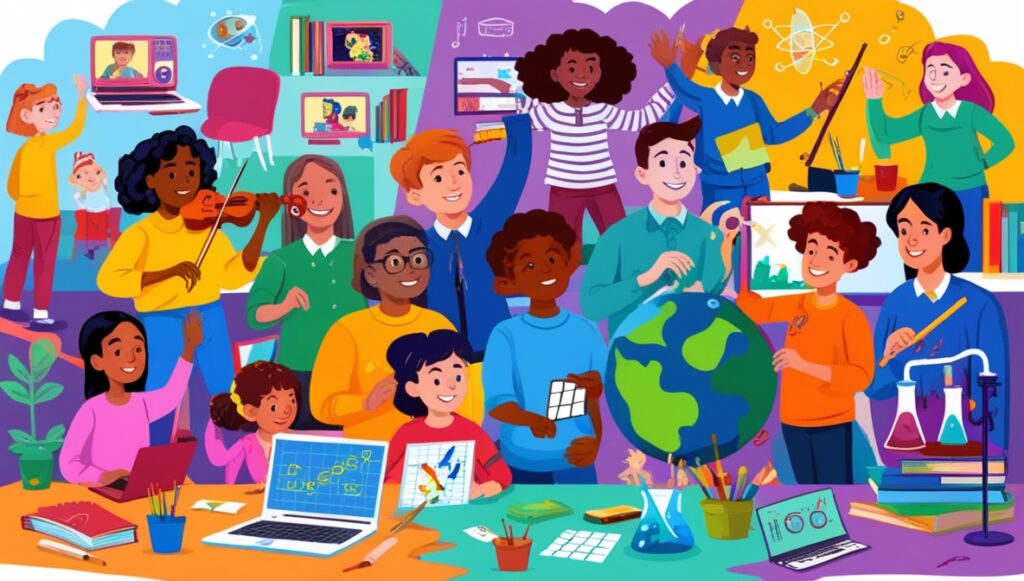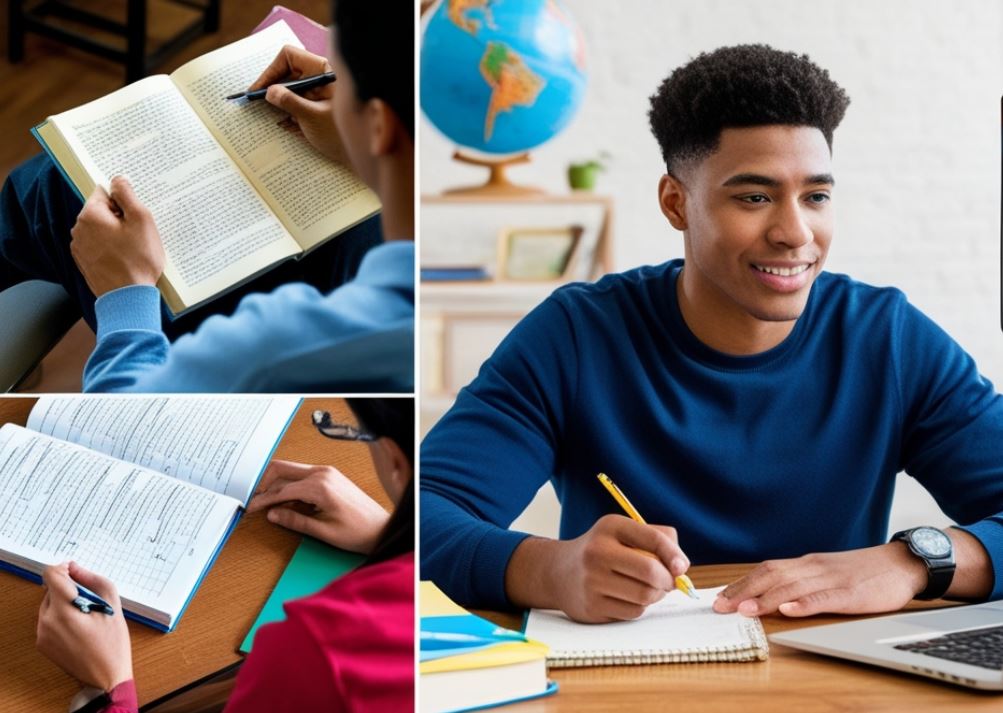In 2011, a boy named Scott Young amazed everyone. He did something many thought was impossible: finished MIT’s 4-year computer science program in just one year. At first, people thought he was a genius. But he used free videos on YouTube to learn. Scott didn’t stop there. In 30 days, he learned to paint like a pro and started speaking Spanish. People wanted to know how he did it.
Scott shared his secrets in a blog and wrote a book called “Ultra Learning.” He described nine steps to learn anything fast. Let’s explore these steps and see how you can become an expert quickly.
1. Meta Learning: Learning How to Learn
Meta Learning is the first and most important step. It’s about understanding how to learn before you start. Think of it as making a plan for your learning journey.
Scott Young breaks knowledge into four parts:
-
Known Known: What you know you know, like how to write.
-
Known Unknown: What you know you don’t know, like how to fly a plane.
-
Unknown Known: What you don’t know you know, like tying your shoes without thinking.
-
Unknown Unknown: What you don’t know you don’t know, like new things in a subject you’ve never studied.
For example, if you’re learning about investing, start by figuring out what you need to know, like how stock prices go up. Ask yourself questions about the topic to make a clear plan. This makes learning easier and faster.
2. Focus: Concentrating on One Thing at a Time
Focus is the next important step. It means giving all your attention to one task without getting distracted.
Think of Mary Somerville, an 18th-century scholar who loved math. Back then, girls were not encouraged to study. Mary faced many obstacles but stayed focused on her studies. She became the first woman in the Royal Astronomical Society.
Mary’s story shows us the power of focus. To learn deeply, you need to get rid of distractions. Set specific times for study and create a quiet space. Focus helps you master new skills faster.
3. Directness: Applying Learning in Real Life
Directness means learning by doing. It’s about using what you learn in real situations instead of just reading or watching videos. This hands-on method speeds up learning.
Take Vatsal Jaiswal, who moved from India to Canada to become an architect. He struggled to find a job at first. Instead of giving up, he worked at a print shop making architectural plans. This helped him learn by seeing real designs. He improved his skills, made a great portfolio, and got job offers.
Vatsal’s story shows how directness works. By using your knowledge in real life, you understand and learn better.
4. Drill: Practicing Your Weaknesses
Drilling means practicing the things you’re not good at. It’s about finding your weak spots and working on them until you get better.
Benjamin Franklin, one of America’s founding fathers, used drilling to improve his writing. He rewrote stories from his favorite magazine, “The Spectator,” in his own words. By copying skilled authors, he got better at writing.
To drill successfully, target the areas you need to improve. Practice these areas a lot, and you’ll see progress.
5. Retrieval: Testing Yourself Regularly
Retrieval means actively recalling information from memory. Instead of just reviewing material, test yourself often. This makes your learning stronger.
In schools, students study for long periods and take exams rarely. Ultra learning suggests frequent self-testing. By challenging yourself to remember things, you strengthen your memory.
For example, instead of studying all year for a final exam, break your learning into smaller parts. Test yourself after each part. This helps you find gaps in your knowledge and remember better.
6. Feedback: Learning from Mistakes
Feedback is important for improvement. It helps you see what you’re doing right and where you need to change. Positive feedback is nice, but negative feedback gives valuable insights.
Imagine a bird on a tree. A hunter aims an arrow at the bird. The bird closes its eyes, thinking if it can’t see the hunter, the hunter can’t see it. This shows how ignoring feedback can hurt you.
In ultra learning, seeking feedback is key. Whether from a mentor, a friend, or yourself, understanding your mistakes helps you get better.
7. Retention: Keeping What You’ve Learned
Retention is about keeping and practicing what you’ve learned. Regular practice stops you from forgetting.
Nigel Richards, a Scrabble champion, showed amazing retention. He won the English World Championship three times and also the French World Championship. He wasn’t a native French speaker but practiced a lot.
Retention needs constant effort. Like muscles need exercise, your brain needs practice to stay strong. By practicing often, you keep your skills sharp.
8. Intuition: Developing Quick Judgments
Intuition is understanding something instantly without thinking too hard. It comes from experience and quick feedback.
Physicist Richard Feynman had great intuition. He solved tough problems fast, often better than others. This came from his habit of seeking quick feedback, which refined his understanding.
To build intuition, engage deeply with what you’re learning and seek feedback often. Over time, you’ll spot patterns and make quicker judgments.
9. Experimentation: Trying New Approaches
Experimentation means exploring different ways to learn. It’s about being open to new ideas and trying unusual methods.
For example, Arnold Schwarzenegger, a famous bodybuilder, took ballet lessons to improve his posing. Ballet and bodybuilding seem different, but this new approach helped him perform better.
Experimentation helps you find what works best. By trying different methods, you can learn and improve more effectively.
Conclusion: Embrace Ultra Learning
Scott Young’s journey and ultra learning steps show that anyone can become an expert fast. Use meta learning, focus, directness, drilling, retrieval, feedback, retention, intuition, and experimentation in your learning process. This way, you can achieve amazing results.
Success is not just about working hard but working smart. Plan your learning, stay focused, apply your knowledge, practice your weaknesses, test yourself often, seek feedback, keep your skills sharp, develop intuition, and try new approaches. Follow these steps to unlock your potential and master any skill quickly.
So, start your ultra-learning journey today and become an expert in anything you want! Also comment, what you are going to learn in the next 30 days.



